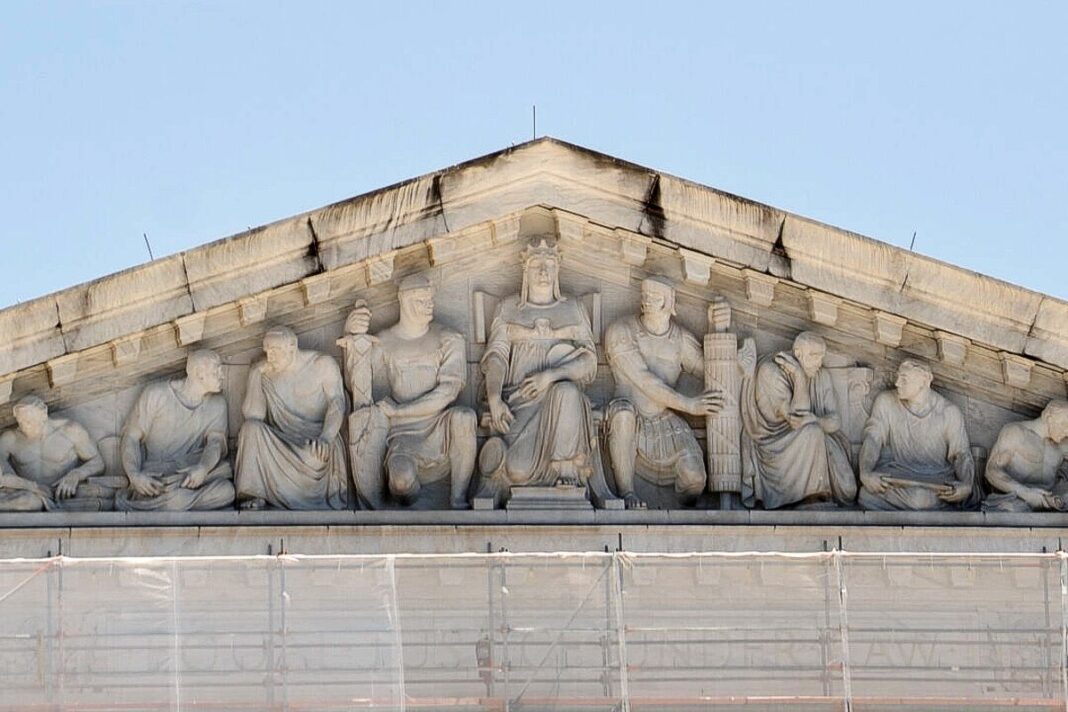The bill marks a major political victory for Trump, allowing him to advance much of his domestic agenda from tax cuts to border security.
WASHINGTON—President Donald Trump signed the One Big Beautiful Bill Act into law on July 4, celebrating both a major legislative victory and America’s Independence Day at a White House ceremony.
The signing took place at 5:45 p.m. during a military family picnic on the White House grounds. Two B-2 Spirit bombers from Whiteman Air Force Base, each escorted by a pair of F-35 fighter jets, performed a flyover during the signing ceremony.
House Speaker Mike Johnson (R-La.), Sen. Lindsey Graham (R-S.C.), Treasury Secretary Scott Bessent, Attorney General Pam Bondi, several other Cabinet members, and numerous Republican senators and members of Congress attended the event.
“It’s the most popular bill ever signed in the history of our country,” Trump said before signing the bill.
“We’re setting all sorts of economic records right now,” Trump said. “After this kicks in, our country is going to be a rocket ship, economically.”
The president also highlighted the success of a recent U.S. military operation targeting Iran’s nuclear facilities, describing it as “one of the most flawless military campaigns” in American history.
He invited 150 airmen and their families from Whiteman Air Force Base in Missouri, home of the B2 bombers, to the White House signing ceremony.
The bill marks a major political victory for Trump, allowing him to advance much of his domestic agenda.
The historic bill came after weeks of intense negotiations within the Republican Party and between the House and Senate. It includes making the 2017 tax cuts permanent, providing tax breaks on tips, overtime, and Social Security income, funding the completion of the border wall, allocating $150 billion for defense spending, and repealing so-called green energy tax credits.
Here are the main components of the bill.
Permanent Extension of 2017 Tax Cuts
The centerpiece of the legislation is permanently extending the lower individual income tax rates introduced in the 2017 Tax Cuts and Jobs Act.
Without this action, those cuts would have expired at the end of 2025, causing rates to rise in 2026 and increasing the tax burden on millions of households.
By Emel Akan







